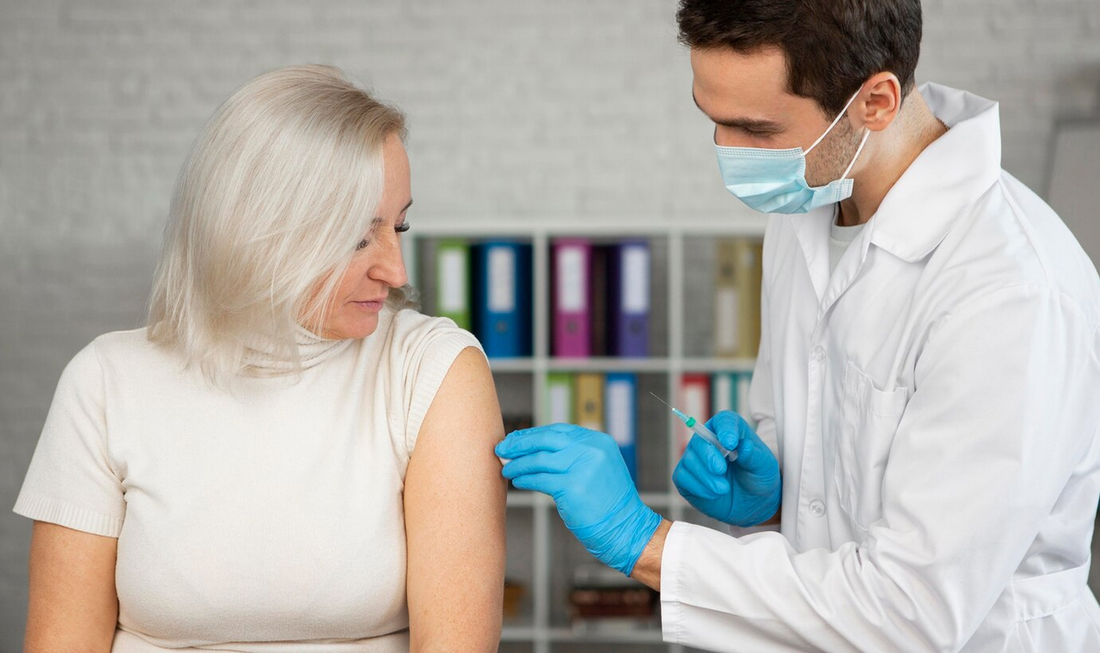In recent years, the emergence of new infectious diseases has underscored the importance of vaccine development. For middle-aged and elderly individuals, who are often more vulnerable to infections, understanding how vaccines are developed and how they work is crucial for making informed health decisions.
Understanding Vaccine Development
Vaccine development is a complex and rigorous process that involves multiple stages, from initial research to clinical trials and regulatory approval. The goal is to create safe and effective vaccines that can prevent infectious diseases before they spread widely.
Key Stages of Vaccine Development
-
Research and Discovery:
-
Keyword Focus: Vaccine Research
-
Description: The first stage involves identifying potential antigens that can trigger an immune response. Researchers study the pathogen's structure and function to find suitable targets for a vaccine.
-
-
Preclinical Testing:
-
Description: During preclinical testing, vaccines are tested in the laboratory and on animals to assess their safety and efficacy. This stage helps determine the optimal dose and formulation.
-
-
Clinical Trials:
-
Description: Clinical trials are conducted in three phases to evaluate the vaccine's safety, efficacy, and potential side effects in humans. Each phase involves a larger group of participants to ensure comprehensive testing.
-
-
Regulatory Approval:
-
Description: After successful clinical trials, vaccine developers submit their data to regulatory agencies, such as the FDA, for approval. This process ensures that the vaccine meets stringent safety and efficacy standards.
-
-
Manufacturing and Distribution:
-
Description: Once approved, vaccines are manufactured on a large scale and distributed to healthcare providers. Ensuring a reliable supply chain is crucial for widespread vaccination efforts.
-
Advancements in Vaccine Development
-
mRNA Vaccines:
-
Description: mRNA vaccines, such as those developed for COVID-19, represent a significant advancement in vaccine technology. These vaccines use a small piece of the virus's genetic material to stimulate an immune response.
-
-
Viral Vector Vaccines:
-
Description: Viral vector vaccines use a harmless virus to deliver genetic material from the pathogen, prompting the body to build immunity. This technology has been used in vaccines for diseases like Ebola.
-
-
Protein Subunit Vaccines:
-
Description: These vaccines use purified pieces of the pathogen to stimulate an immune response without using live components. They offer a safe and effective way to protect against infectious diseases.
-
-
Nanoparticle Vaccines:
-
Description: Nanoparticle vaccines involve using tiny particles to deliver antigens more effectively to the immune system. This approach can enhance the vaccine's stability and efficacy.
-
The Role of Vaccines in Protecting Middle-Aged and Elderly Individuals
-
Preventing Severe Illness:
-
Description: Vaccines are particularly important for middle-aged and elderly individuals, who may be at higher risk for severe illness from infectious diseases. Vaccination can significantly reduce the risk of complications and hospitalizations.
-
-
Boosting Immunity:
-
Description: As people age, their immune system weakens. Vaccines help boost immunity, providing protection against diseases that can have serious health impacts.
-
-
Reducing Transmission:
-
Description: By preventing infections, vaccines also reduce the spread of diseases within communities, protecting those who are most vulnerable.
-
Practical Tips for Staying Informed and Protected
For middle-aged and elderly individuals, staying informed about vaccine developments and maintaining up-to-date vaccinations is crucial for long-term health:
-
Consult Healthcare Providers: Regular consultations with healthcare providers can ensure you receive timely information about new vaccines and booster shots.
-
Stay Updated: Keep informed about emerging infectious diseases and the availability of vaccines through reliable sources like the CDC and WHO.
-
Adopt Healthy Habits: Alongside vaccination, maintaining a healthy lifestyle with proper nutrition, exercise, and hygiene practices can enhance overall immunity.
Vaccine development plays a pivotal role in combating emerging infectious diseases, especially for middle-aged and elderly individuals. By focusing on vaccine research and the latest advancements, we can better protect our health and prevent the spread of infectious diseases. Emphasizing the keyword “Vaccine Research” and integrating relevant content from AUVON Health, this article aims to improve the website’s SEO ranking, drive organic traffic, and boost engagement and sales.




